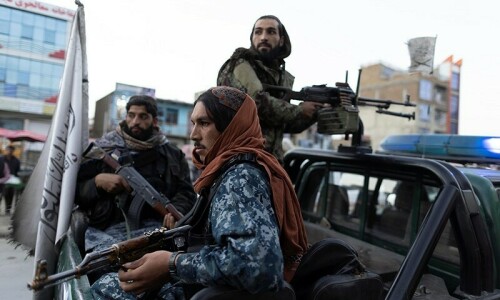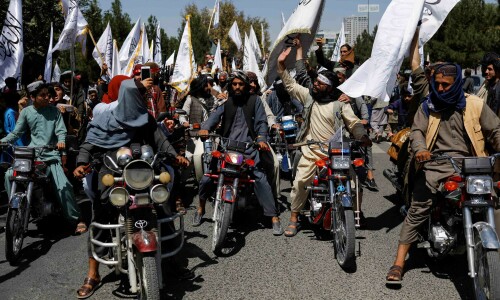WASHINGTON: The US State Department has announced a significant restructuring of its diplomatic strategy towards Afghanistan, appointing three senior officials to manage different aspects of its policy. The move replaces the singular role previously held by Thomas West, the outgoing US Special Representative for Afghanistan.
The new structure reflects the Biden administration’s continued focus on Afghanistan, especially in light of ongoing security concerns following the Taliban’s resurgence.
Thomas West, who previously led US diplomatic efforts related to Afghanistan, will now serve as head of the Office of Sanctions Coordination at the State Department.
His responsibilities will be distributed among Karen Decker, Special Envoy Rina Amiri, and Ambassador John Mark Pommersheim, each overseeing a distinct part of the US policy in the region.
Karen Decker, a seasoned Foreign Service officer, will manage diplomacy from Doha. She previously directed Afghanistan operations from 2021 to August 2022, overseeing the relocation of Afghan refugees to the United States. Prior to that, she served as Deputy Chief of Mission at the US Embassy in Kabul.
Rina Amiri will continue in her role as Special Envoy, focusing on human rights with an emphasis on the rights of Afghan women and girls. In Washington, Ambassador Pommersheim, a career diplomat who formerly served as US Ambassador to Tajikistan, will be responsible for inter-agency coordination and policy development on Afghanistan.
Ms Amiri, with over 20 years of experience in conflict settings across regions including West Africa, Central Asia, and the Middle East, has expertise in peace, security, and inclusion in mediation processes.
Professor Hassan Abbas of the National Defense University described the changes as indicative of Washington’s determination to stay involved in Afghanistan, despite the country becoming a hub of terrorism. Abbas emphasised that the rise of terrorist groups like Tehreek-i-Taliban Pakistan (TTP), which operates from Afghan territory to attack neighbouring countries like Pakistan, remains a pressing issue for the US.
A US official, speaking anonymously, agreed with this assessment, saying the growth of cross-border terrorism from groups such as the TTP is a significant concern for Washington as it seeks to balance diplomatic engagement with security challenges in the region.
Abbas believes the change in US leadership over Afghan policy is unlikely to result in a major shift before the next administration takes office in January 2025. He also predicted a potentially harder stance on engaging with the Taliban under the new leadership. “The US position regarding engagement with the Taliban is likely to become less flexible with this change,” he remarked.
When asked about the implications of this restructuring for Pakistan, Abbas noted that direct engagement between Pakistan and the Taliban may limit any significant impact. However, he acknowledged that Pakistan’s requests for US support in tackling the TTP have yet to yield substantial results.
“The US is more concerned about ISIS-KP at this time, and US-Pakistan relations are not in great shape,” Abbas added, suggesting that improvements in cooperation might emerge after the US presidential elections next year.
Michael Kugelman, director of South Asia at the Wilson Centre, viewed the restructuring as a signal of waning US interest in Afghanistan. “This move reflects the degree to which US policy focus on Afghanistan has changed and, quite frankly, receded over the last three years,” he said.
Kugelman noted that the State Department has led much of the post-withdrawal US engagement with Afghanistan, and phasing out the senior-most post overseeing Afghanistan policy is a significant shift.
The official US position, however, is that the restructuring will allow the government to address the evolving political and humanitarian challenges Afghanistan faces under Taliban rule, while still protecting US national interests and supporting the Afghan population.
Published in Dawn, October 8th, 2024
















































Dear visitor, the comments section is undergoing an overhaul and will return soon.